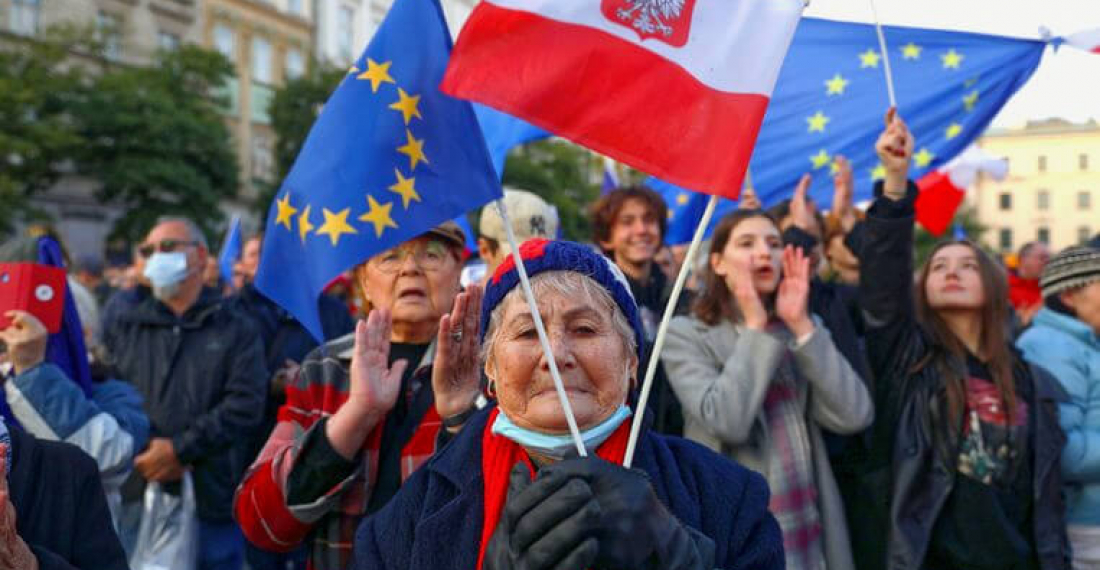Poland has ratified the decision of the Polish Constitutional Tribunal to place Polish law above European Union legislation. The government published the ruling yesterday (12 October) in the country's Journal of Laws.
In areas where articles of EU treaties and judgments of EU courts conflict with the Polish constitution, Poland's domestic law takes precedence, according to the court ruling. In this way, the country is undermining one of the most important principles of the EU.
The new law could further strain relations between Poland and the EU already under strain due to disagreements on a number of issues ranging from the rule of law to the environment.
The Tribunal's conclusion triggered sharp reactions in Brussels. EU member states France and Germany reacted with shock, because the Court's ruling undermines the European legislation, which all member states must comply with.
The publication of the new law in the official journal could also impact the future of Poland's National Reconstruction Plan after the COVID-19 pandemic. Poland is awaiting the green light for billions from the EU Recovery Fund. But the European Commission is still analysing Poland's spending plan, with some politicians claiming the delay is caused by Brussels' concerns about the state of the rule of law in Poland.







